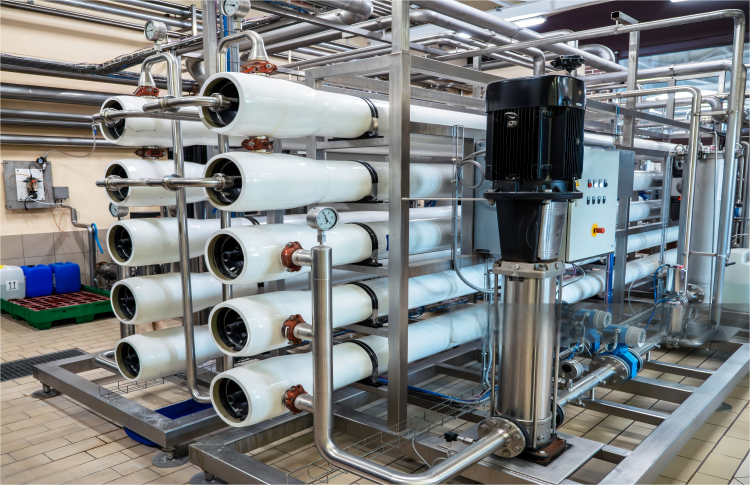In the rapidly evolving beverage industry, the demand for high-quality products and efficient production processes has led to the increasing adoption of ultrafiltration (UF). Ultrafiltration, a membrane filtration process, has proven to be an invaluable technology in producing a variety of beverages, including juices, dairy products, and even soft drinks. This article explores the principle behind ultrafiltration, its advantages in beverage production, and the potential for future development in the industry.
The Principle of Ultrafiltration
Ultrafiltration operates by using a semipermeable membrane to separate particles based on their size. The process allows water and smaller molecules to pass through the membrane while retaining larger molecules, such as proteins, polysaccharides, and microorganisms. This process typically works under pressures between 1-7 bar, depending on the specific application.
The ultrafiltration membranes have pore sizes ranging from 0.1 to 0.01 microns, allowing them to efficiently separate solutes such as bacteria, viruses, and colloids from liquids. For the beverage industry, UF serves as an effective tool to purify and concentrate ingredients, ensuring that the final product meets the desired quality standards.
Advantages of Ultrafiltration in Beverage Production
The integration of ultrafiltration into the beverage production process offers numerous benefits:
- Enhanced Quality and Consistency: UF ensures that the final product is free from impurities, providing a consistent taste and texture. For example, in dairy products like milk and yogurt, UF is used to remove unwanted particles, resulting in a smoother texture and better mouthfeel.
- Improved Shelf Life: Ultrafiltration helps extend the shelf life of beverages by effectively removing bacteria and microorganisms. By minimizing microbial contamination, UF helps in maintaining the freshness of juices, soft drinks, and other liquid products without the need for excessive preservatives.
- Energy Efficiency: Compared to other filtration techniques, UF is energy-efficient due to its relatively low operating pressures and high permeate flow rates. This leads to cost savings for manufacturers in terms of both energy consumption and operational expenses.
- Minimal Chemical Use: Unlike some traditional filtration methods, ultrafiltration does not require chemicals for the separation process. This makes it a more environmentally friendly option, as it reduces the need for chemical additives and minimizes waste generation.
Future Potential of Ultrafiltration in the Beverage Industry
As the demand for healthier, more sustainable products grows, the beverage industry is likely to see continued advancements in ultrafiltration technology. Innovations in membrane materials and process optimization are expected to improve efficiency and reduce costs further.
- Integration with Other Technologies: Ultrafiltration can be combined with other filtration methods, such as reverse osmosis and nanofiltration, to achieve even higher levels of purity and concentration. This combination could be particularly valuable in high-end beverage production, where maintaining product integrity is critical.
- Waste Reduction: As sustainability becomes a key focus for manufacturers, UF can play a crucial role in reducing waste. By enabling the reuse of water and other ingredients, UF helps minimize waste production in the beverage manufacturing process.
- Smart Membranes and Automation: The future of UF in the beverage industry may also involve the integration of smart membranes that can self-clean or change their properties in response to changes in the liquid being filtered. Automation in the UF process could also lead to higher production speeds and improved monitoring, ensuring consistent product quality.
Data and Case Studies
To highlight the effectiveness of ultrafiltration in the beverage industry, let’s look at some real-world data:
Beverage Type UF Process Efficiency Shelf Life Extension Energy Savings Fruit Juices 95% Removal of Particles +30% Shelf Life 20% Reduction Milk 90% Bacteria Removal +25% Shelf Life 15% Reduction Soft Drinks 98% Contaminant Removal +40% Shelf Life 18% Reduction As demonstrated by the table, ultrafiltration consistently improves product quality, extends shelf life, and offers energy savings across different beverage categories.
Conclusion
Ultrafiltration is becoming an essential technology in the beverage industry. With its ability to enhance product quality, improve shelf life, and reduce operational costs, UF is poised to play a significant role in the future of beverage production. As technology continues to evolve, we can expect even greater efficiencies and innovations, making ultrafiltration a key player in meeting the growing consumer demand for healthier and more sustainable beverages.

 MBR Membrane
MBR Membrane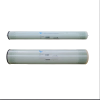 Reverse Osmosis Membrane
Reverse Osmosis Membrane Residential Ro Membrane
Residential Ro Membrane UF Membrane
UF Membrane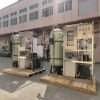 Water Treatment Plant
Water Treatment Plant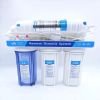 Residential Ro Machine
Residential Ro Machine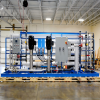 Brackish Ro System
Brackish Ro System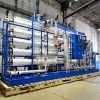 Sea water system/SW RO plant
Sea water system/SW RO plant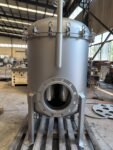 Bag Filter
Bag Filter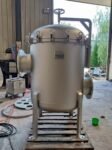 Cartridge Filter
Cartridge Filter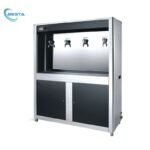 Commercial Water Filtration System
Commercial Water Filtration System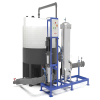 Membrane Cleaning System(CIP)
Membrane Cleaning System(CIP)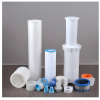 Consumables Accessories
Consumables Accessories